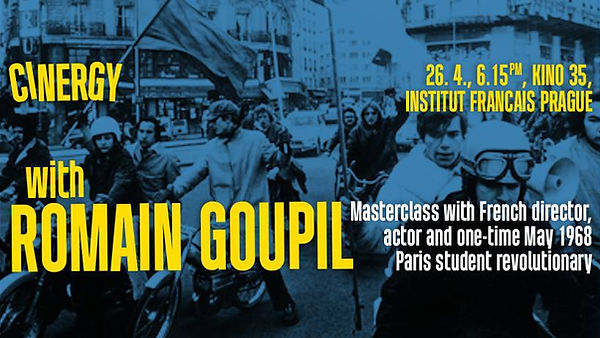


Romain Goupil
master-class / film screening
Romain Goupil was born in 1951. In 1968, as a 16-year-old secondary school student, he was one of the most active participants in the student revolt in Paris, during which he met then student leader Daniel Cohn-Bendit. From 1969 he began putting his energies into filmmaking, first as an assistant cameraman and later as an assistant director, working with the likes of Chantal Akerman, Roman Polanski and Jean Luc Godard. He documented the events of 1968 in his film Half a Life, which came out in 1982 and earned numerous prizes at film festivals, including a Caméra d'Or at Cannes, and was nominated for the Best Foreign Language Film. Goupil later directed numerous documentaries and fiction films, always focusing on important themes, such as the extreme right, the war in Sarajevo and illegal migration… His most recent film, La Traversée, will receive its premiere at the upcoming edition of the Cannes IFF, where a restored version of Half a Life will also be screened.
Romain Goupil visits Prague as part of the project “The year 1968 in France, Germany and Czechoslovakia: A common story?” organised by the French Institute and the Goethe Institute.
Screening: Half a Life / 1982, 95 min
One of the most important testimonies to the events of May 1968 in Paris is the documentary Half a Life by Romain Goupil, who was then himself a student revolutionary on the barricades. The film tells the story of his good friend Michel Recanati, who 10 years after the well-known protests – in March 1978 – committed suicide. The highly compelling film took numerous awards, including a Caméra d'Or at Cannes in 1982 and a César for Best Debut. In it Goupil returns in his recollections to an inseparable childhood friendship and to how teenage boys’ protests against the Vietnam War grew into such an interest in politics that they found themselves a few years later at the centre of events in May 1968. The film, which also includes archive footage shot by the director himself on Super 8, details their youth and implacable hope, revolutionary passion and subsequent disappointment.
Goupil’s account of his friendship with Michel tells the story of two people who even at the turn of the 1970s were throwing Molotov cocktails and planning insurrection against bourgeois society only to ultimately – each in his own way – attempt to come to terms with awakening from leftist dreams into reality.




